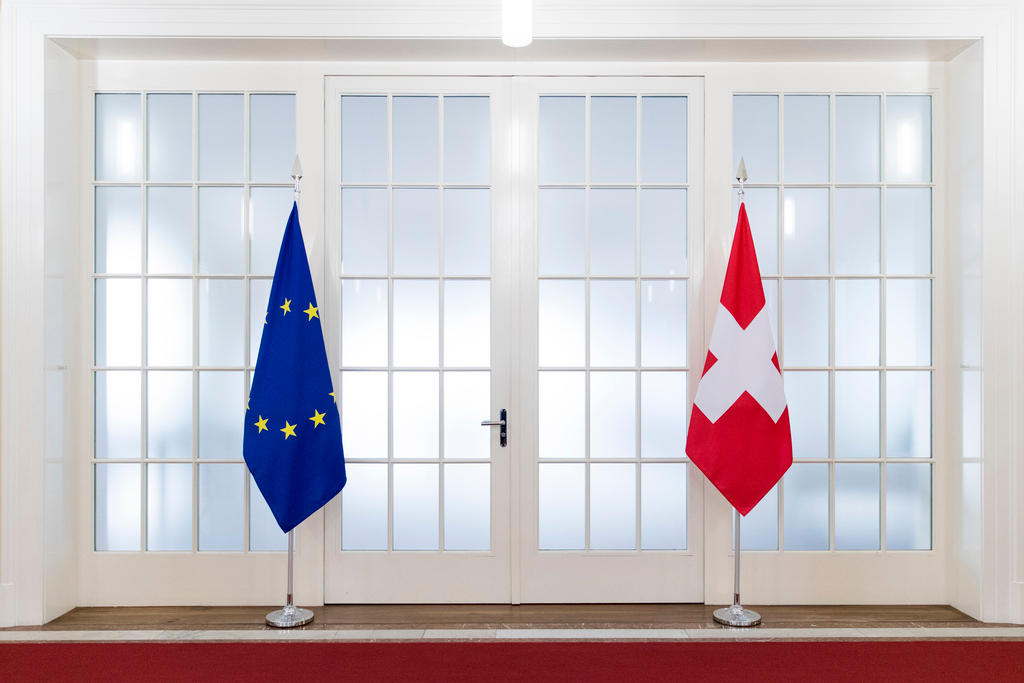Swiss-EU relations: the key milestones
Switzerland is not member of the European Union, but its relations with the 27-member bloc are founded on a series of bilateral sectoral accords, which give it many benefits of membership.
Since the 1972 Free Trade Agreement, and after the electorate rejected accession to the European Economic Area (EEA) in 1992, Switzerland and the EU have struck 20 main deals and more than 100 other agreements giving Swiss companies access to sectors of the EU single market and governing cooperation between the two sides. Under this arrangement, Switzerland has accepted the free movement of people.
Thanks to its large internal market of over 500 million people, the EU is not only the world’s largest economic power ahead of the United States and China, but also plays an important role for peace and stability on the European continent.
In the past, the Swiss voters confirmed their support for the bilateral path in various votes. In February 2014, however, a majority of citizens backed a referendum to limit immigration from the EU. This vote complicated relations and spurred Brussels into pushing for an overhaul of the way it interacts with Switzerland.
Since 2014, talks have been taking place to formalise relations between the two sidesExternal link, now covered by the bilateral accords. The so-called framework agreement being discussed covers five of the larger bilateral deals: free movement of persons, mutual recognition on conformity assessment, agricultural products, air transport and land transport. Measures related to the free movement of persons are the main stumbling block.
The EU wants a new arrangement under which Switzerland would automatically accept changes in line with EU rules, and an end to Swiss exceptionalism in areas such as wage protection and state guarantees for banks.
Meanwhile, Swiss private banks are seeking a financial services deal guaranteeing easier access to EU markets. Internally, there is strong support for an independent, neutral Switzerland, and certain opposition to “foreign judges”, and concerns over unlimited immigration.
Translated from German by Billi Bierling













You can find an overview of ongoing debates with our journalists here . Please join us!
If you want to start a conversation about a topic raised in this article or want to report factual errors, email us at english@swissinfo.ch.